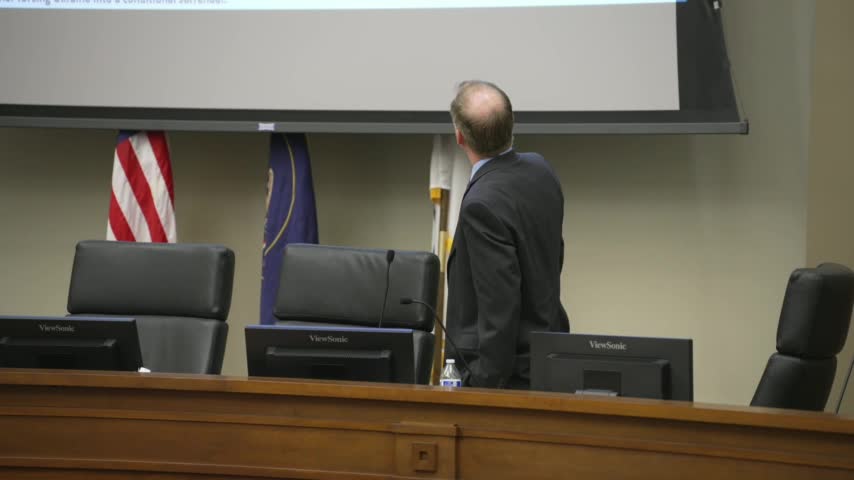Trump proposes Ukraine peace plan amid heightened nuclear war risks
November 16, 2023 | Other , Citizen Journalism , 2024 -2025 Utah Citizen Journalism, Elections, Utah
This article was created by AI summarizing key points discussed. AI makes mistakes, so for full details and context, please refer to the video of the full meeting. Please report any errors so we can fix them. Report an error »

In a recent meeting held in Highland, Utah, discussions led by David Pyne focused on the ongoing conflicts in Ukraine, Israel, and Taiwan, highlighting the complex geopolitical landscape and the implications for U.S. foreign policy. Pyne, who has faced criticism for his views on Ukraine, presented a peace plan he proposed earlier this year, which he claims could have allowed Ukraine to regain most of its lost territory, excluding Crimea. His plan included a referendum in the contested Donbas region and a full withdrawal of Russian troops from areas like Zaporizhzhia and Kherson. However, this proposal was deemed insufficiently supportive of Ukraine by some, resulting in Pyne being placed on a Ukrainian blacklist.
During the meeting, Pyne emphasized the current state of the war, noting that despite claims of Ukrainian victories, recent counteroffensives have only reclaimed a small fraction of Russian-occupied territory. He pointed out that Russia maintains a significant reserve of troops near Kherson, which could potentially lead to further territorial gains if ordered by President Putin. Pyne compared Russia's military strategy to the Vietnam War, suggesting that while it has prevented more extensive occupation of Ukrainian land, it has also prolonged the conflict.
The discussion also touched on the rising risks of nuclear conflict, with Pyne referencing a statement made by President Biden regarding the heightened threat level, likening it to the Cuban Missile Crisis. He criticized the current administration for not taking sufficient action to mitigate these risks, labeling it a "policy of national suicide" that endangers American lives. In contrast, he noted that former President Trump and political figure Vivek Ramaswamy have expressed a desire to end the war in Ukraine swiftly, with Pyne claiming to have developed a feasible plan that could bring about a resolution within weeks.
The meeting underscored the urgency of addressing these international conflicts and the potential consequences for U.S. national security. As discussions continue, the community remains attentive to how these geopolitical tensions may influence local and national policies moving forward.
During the meeting, Pyne emphasized the current state of the war, noting that despite claims of Ukrainian victories, recent counteroffensives have only reclaimed a small fraction of Russian-occupied territory. He pointed out that Russia maintains a significant reserve of troops near Kherson, which could potentially lead to further territorial gains if ordered by President Putin. Pyne compared Russia's military strategy to the Vietnam War, suggesting that while it has prevented more extensive occupation of Ukrainian land, it has also prolonged the conflict.
The discussion also touched on the rising risks of nuclear conflict, with Pyne referencing a statement made by President Biden regarding the heightened threat level, likening it to the Cuban Missile Crisis. He criticized the current administration for not taking sufficient action to mitigate these risks, labeling it a "policy of national suicide" that endangers American lives. In contrast, he noted that former President Trump and political figure Vivek Ramaswamy have expressed a desire to end the war in Ukraine swiftly, with Pyne claiming to have developed a feasible plan that could bring about a resolution within weeks.
The meeting underscored the urgency of addressing these international conflicts and the potential consequences for U.S. national security. As discussions continue, the community remains attentive to how these geopolitical tensions may influence local and national policies moving forward.
Don't Miss a Word: See the Full Meeting!
Go beyond summaries. Unlock every video, transcript, and key insight with a Founder Membership.
✓
Get instant access to full meeting videos
✓
Search and clip any phrase from complete transcripts
✓
Receive AI-powered summaries & custom alerts
✓
Enjoy lifetime, unrestricted access to government data
30-day money-back guarantee


